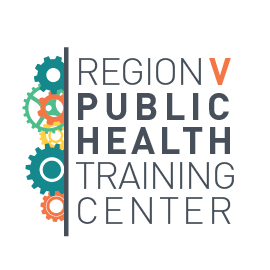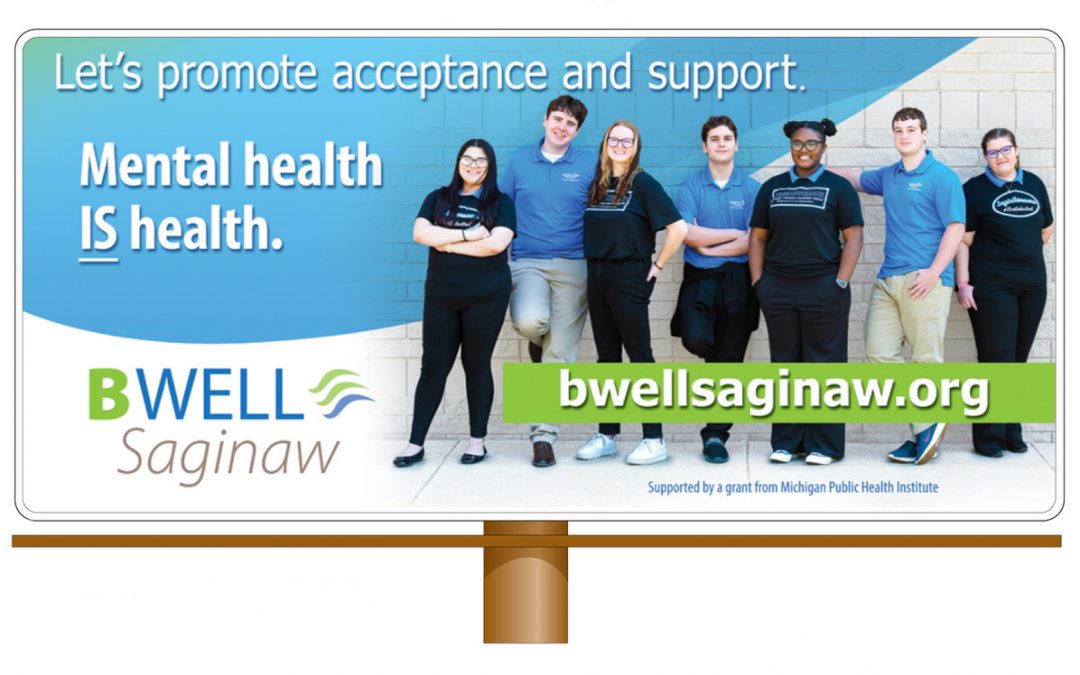By Christina Harrington, MPH, Health Officer, Saginaw County Health Department and Tracy Metcalfe, MPH, Community Health Improvement Coordinator, Saginaw County Health Department
There’s nothing worse than a bunch of well-intentioned adults, meeting virtually on Zoom, trying to develop solutions to address the day-to-day mental health needs of teenagers. Yet, it happens all the time.
And it happened to us. We met repeatedly as members of a Behavioral Health Taskforce, commissioned by BWell Saginaw. BWell Saginaw is a collaborative of 13 health, education, and philanthropy organizations in Saginaw, Michigan, tackling our community’s top three health priorities – one of which is mental health/substance use — with the same vengeance we applied to COVID-19.
Mental health experts, educators, public health advisors, and public outreach consultants all gather monthly to brainstorm and implement ways to address our county’s growing youth mental health and substance use crisis. Our mistake, until recently, was not engaging teenagers in the conversation.
Through the power of our BWell Saginaw partnership, which includes our county’s intermediate school district, we met a unique group of high school seniors representing each one of our rural, suburban, and urban school districts. They had been serving together as a cohort of Youth Ambassadors for three years, participating in leadership development and community service.
Here’s what we did:
We stopped talking and listened.
They are craving opportunities to share their mental health struggles without fear of stigma or reprisal.
We learned.
Engaging teenagers and empowering them to use their voice can help foster positive well-being, academic success, and personal growth.
We asked what they need.
They want to cultivate safe spaces in their schools to “chill,” turn to trained and caring adults when needed during the school day, and understand if what they are feeling is “normal.”
We helped them make it happen.
Here’s how:
- Chill Rooms
Using a generous grant from the Michigan Public Health Institute, the taskforce purchased enough bean bag chairs, lava lamps, Legos, coloring books, colored pencils, kinetic sand, Bluetooth speakers, puzzles, and fidget toys to outfit a “chill room” in every public high school in our county.
- Mental Health First Aid Training
Thanks to that same grant, our public high schools are recruiting and training designated adults to help youth in crisis.
- Suicide Prevention Training
Staff and students at county schools are learning SafeTalk skills, arming them to become suicide alert, recognize the signs, engage someone, and connect them to an intervention source for support.
- Anti-Stigma Campaign
Our Mental Health Youth Ambassadors not only lent their voices, they also offered their faces to a broader anti-stigma campaign designed to treat mental health AS an integral part of overall health and well-being.
- Mental Healthopedia
“I feel…(fill in the blank).” Our youth ambassadors provided a long list of their feelings. Working with our partners at the Saginaw Valley State University College of Social Work and Youth Services, we provided an online resource to help them identify and understand those thoughts and feelings.
This has not been without controversy. Mental health professionals in our community are hesitant to fuel a “Dr. Google” approach to mental health. Some fear liability. Others have expressed concerns that an online resource like this could cause more harm than good for a teenager with an undiagnosed condition or in crisis.
With thoughtful consideration of all feedback, the partners worked together to make edits to the online resources and strengthened our disclaimer to read, “These suggestions are not meant to replace professional help. Self-help is a great skill to learn and can lead to improvement. Professional help can be hard to ask for but can provide tools to better manage difficult thoughts and feelings. Professional help can also rule out any bigger concerns related to your mental health. If you are in crisis, call 988 or text TALK to 741741. If you experience feelings that lead to thoughts of ending your life, call 911 immediately.”
Take a look at the Mental Healthopedia. We think it’s one of a kind.
Conclusion
While not a comprehensive solution to our county’s youth mental health crisis, these tangible resources created with the help of our Youth Ambassadors definitely “get the ball rolling” on a community-wide continuum of care to help kids cope, build resilience, and access help when needed.
When school resumes in Fall 2023, we look forward to evaluating the effectiveness of these resources and will continue to listen more as we approach our community health improvement plans for mental health and substance use.
To learn more, check out this resource:

